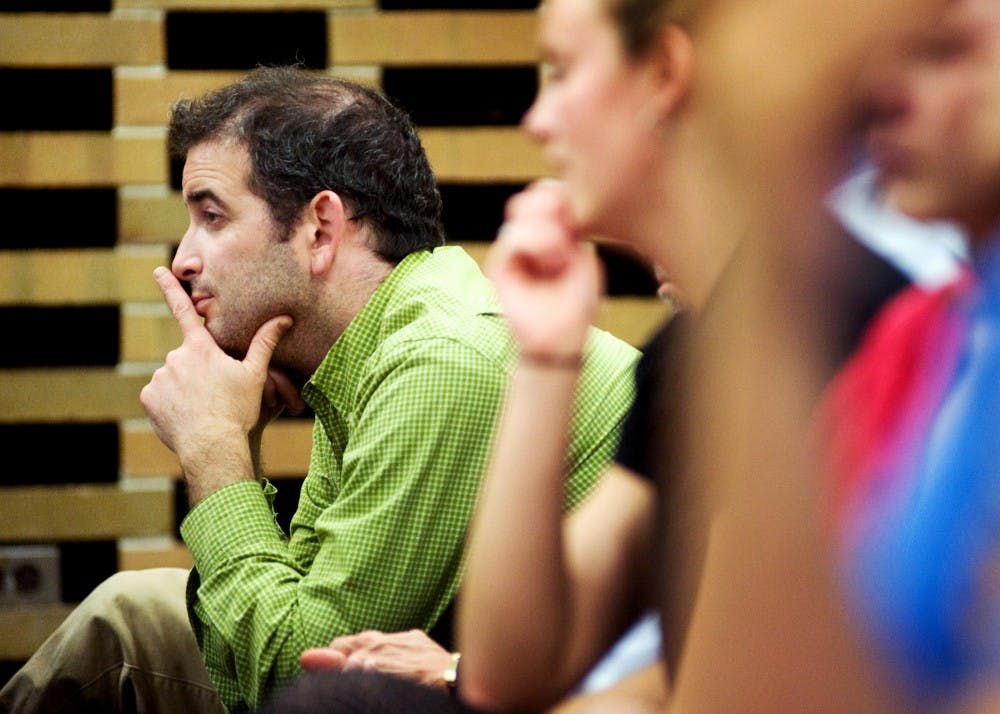In response to the U.N. General Assembly preparation to vote later this month on Palestinian statehood, MSU students attended an open forum Tuesday evening to discuss the status of negotiations between Israel and Palestine.
The event was hosted by the MSU Jewish Studies Program and MSU Hillel, a Jewish student group, to raise awareness of the issue.
The forum was led by David Makovsky and Ghaith al-Omari, who are traveling to different universities to show civil debate between the two often contentious sides is possible.
Makovsky — director of the Project on the Middle East Peace Process at the Washington Institute for Near East Policy— and al-Omari — advocacy director at the American Task Force on Palestine — began the tour after recognizing what they felt was a deteriorating political discourse on college campuses, particularly regarding Israel and Palestine.
“Both Ghaith and I are concerned that the campuses are far behind the curve and that (students) are accentuating their differences,” Makovsky said.
The decision by Palestine to seek declaration from the U.N. is an attempt to win diplomatic leverage in the peace process with Israel, said Kenneth Waltzer, director of MSU’s Jewish Studies Program.
“It’s unclear at this point whether Palestinians view this as an alternative to negotiations … or whether they think it’s simply a tactic to win increased leverage,” Waltzer said. “(Without) negotiations, I believe we’re headed for disaster.”
Both al-Omara and Makovsky said a two-state solution is the only realistic possibility, but reaching a peaceful resolution is difficult considering the contentious nature of the current relations between the two sides.
With many of the traditional channels of communication having been broken down, al-Omara said it’s difficult to know what the result of the U.N. vote will be.
“It’s impossible to tell to be honest,” he said. “I predict it will go down to the wire.”
International relations and psychology sophomore Kanza Khan said she doesn’t think a two state solution would work.
“Palestine doesn’t have the resources right now to have a stable government,” she said. “Maybe in the future it would be a good idea, but right now it has to be a one state solution.”
Ultimately, Makovsky said peace can be reached in the Middle East if both Israel and Palestine, which agree mostly on policy, can agree to put their politics aside.
“The question is whether the policy convergence will be met with political convergence,” he said. “Or is the politics on both sides so poisonous that even though the differences on both sides aren’t that big, they don’t bring you to a deal? We’ll have to see.”
Support student media!
Please consider donating to The State News and help fund the future of journalism.
Discussion
Share and discuss “Potential UN vote sparks forum” on social media.







